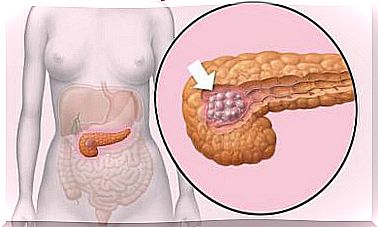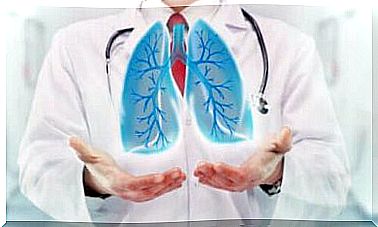8 Diseases Linked To Childhood Obesity

According to data from the regional office of the World Health Organization (WHO), published in RTVE, an estimated 18.5% of children are obese.
However, did you know that in addition to being overweight, there are many diseases associated with childhood obesity? So read on to learn how obesity can affect your child’s health.
Childhood Obesity in the World
Overall, the WHO has been warning everyone about the high prevalence of childhood obesity around the world for several years now. In fact, it is considered one of the most important public health problems of the current century. So what exactly is childhood obesity?
Essentially, this refers to an accumulation of excess fat in the body. The child therefore weighs much more than the weight that is considered healthy for his or her age and height.
If you suspect that your child is overweight or even obese, see your pediatrician for an examination. The BMI (Body Mass Index) is a globally accepted indicator for assessing whether a child is overweight or obese.
Diseases Associated with Childhood Obesity
In addition to aesthetics, fat accumulation can lead to diseases that doctors in the past considered “adult diseases.” Below we will tell you which health problems can occur in overweight children.
1. Type 2 Diabetes

Obese children are also at high risk of developing type 2 diabetes, a condition characterized by a significant rise in blood glucose levels.
Type 2 diabetes is a type of diabetes that is acquired. It is not innate. Every time we eat food, the pancreas releases insulin to separate the glucose from the ingested sugars and thus supply the cells with nutrients.
The problem occurs when too much food causes the pancreas to work too much. This can cause the insulin-producing cells to die over time, resulting in type 2 diabetes.
According to data from a study published in the Journal of the Endocrine Society in 2017, there is a clear link between obesity and the incidence of type 2 diabetes in children.
2. High Blood Pressure
Several studies have concluded that being overweight increases blood pressure, which can cause hypertension in children. This increase in tension can also lead to cardiovascular problems in the long run. For this reason, doctors usually recommend a healthy and balanced diet for weight loss, as well as an exercise schedule.
3. High Cholesterol
Plaque buildup in the arteries can lead to narrowing of the arteries. The biggest complication of this situation is that if the arteries become blocked, it can lead to a heart attack or even a stroke.
4. Self-esteem issues and depression
Children can be cruel: the bullying that appears in the newspaper every week is proof of this. Unfortunately, an obese child can become the victim of all kinds of comments that affect his or her self-esteem and in the worst case cause severe depression in children.
5. Metabolic Syndrome

This syndrome includes several health problems that affect the body holistically. In fact, children who have it experience hypertension, low good cholesterol, high triglycerides, and even glucose intolerance. It’s also worth noting that this intolerance can lead to type 2 diabetes over time.
Children who are obese can develop diseases that are grouped as metabolic syndrome. If not controlled, it can affect their quality of life.
6. Non-Alcoholic Fatty Liver
Another disease linked to childhood obesity is non-alcoholic fatty liver disease. This happens when fat slowly builds up in the liver because the liver can’t process it properly. The biggest risk is that liver cell damage can occur.
7. Eating Disorders
Overweight and obesity, as we have already seen, can cause low self-esteem in children and push the child towards anorexia or bulimia in a desperate attempt to lose weight.
8. Asthma
Finally, some research indicates that the inflammatory processes caused by obesity can trigger asthma symptoms by disrupting children’s airways.
Keep in mind
These are the main diseases associated with childhood obesity. However, they are not alone: sleep apnea and a pattern of restless sleep are two other possible complications of obesity.
If you suspect that your child is overweight, do not hesitate to consult your pediatrician. They are the best option for diagnosing the condition and giving you guidelines for healthy eating and exercise for your child.








